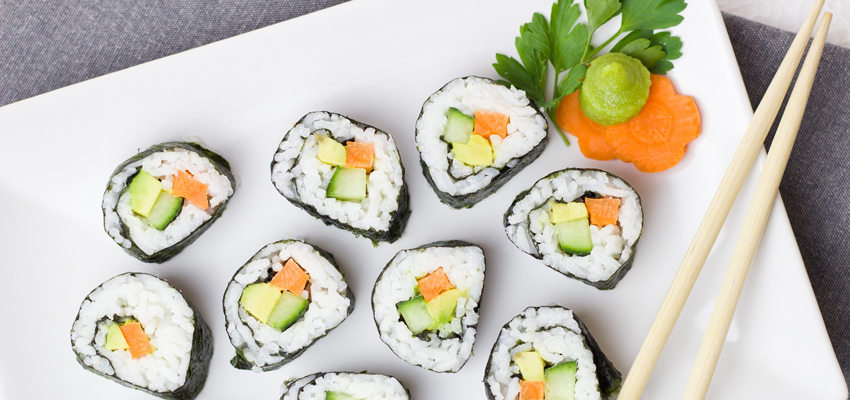Pizza, curry sausage and kebab as typical lunchtime snacks are facing competition. Many office workers pinch chopsticks between their fingers during their lunch break and open their "Bento box".
A "sushi factory" has also recently opened in our local supermarket, where delicious Japanese morsels are freshly rolled out finger-fast in front of the customers every day.
Of course, the microbiological quality of the sensitive products is the first thing that comes to mind. The purchase requires a high level of trust in the expert knowledge and hygiene training of the sushi master. If this is disappointed, a severe stomach and intestinal upset or worse is imminent, as I have already experienced myself. The delicate topic shall not be deepened here.
There is another hidden Sushi risk:
What about the quality of the algae leaves used to make the popular maki rolls?
Seaweed is not only traditionally used as a wrapping for Japanese finger food variations, but is also used as an ingredient in Asian ready-made soups, vegetable mixtures and ground or as an extract in food supplements. Algae are valued as a vegan food because of their high protein, natural mineral and trace element content. Unfortunately, however, algae and seaweed also easily accumulate heavy metals with the sea minerals.
In a monitoring programme carried out in Germany in 2018, 165 dried algae products were tested for heavy metals, among other things, by the participating official food safety labs. In 10% of the samples, the maximum permissible levels for lead and cadmium were exceeded. The arsenic content was also frequently conspicuously high. However, the toxic element is mainly present in organically bound form, so that the measured contents of up to 25 mg/kg were less harmful to health than this high value would have suggested.
Aluminium and even uranium is also enriched in algae. For adults at the usual average consumption levels, the contents were still considered harmless.
Iodine, on the other hand, which is an important trace element for healthy thyroid function, is often found in seaweed in concentrations that are harmful to health. Algae products containing more than 20 mg/kg iodine must be labelled with a warning, which unfortunately is not taken into account in the labelling of many imported products.
Currently there are no legally binding maximum values for dried algae (except for food supplements). For heavy metals and iodine, however, work is already underway at EU level to establish them.
The AGROLAB GROUP laboratories offer analytical testing of algae products in food, food supplements and also in animal feed.
You can find more about this topic on our website under Novel Food - Algae
Link:
Author: Dr. Frank Mörsberger

 Contact
Contact

 Contact
Contact Career
Career